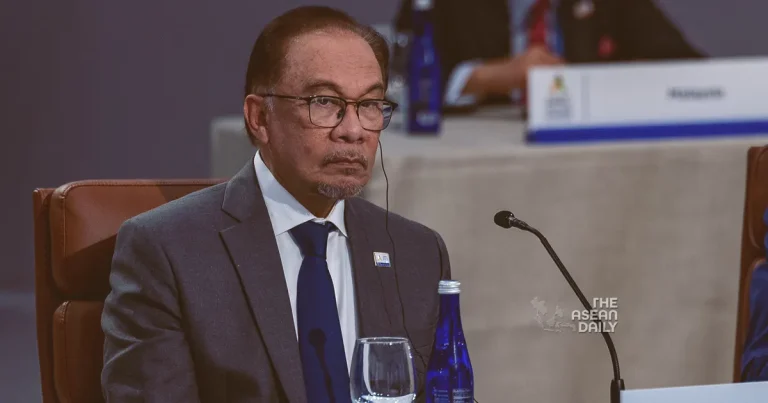22-11-2023 (KUALA LUMPUR) A year into his term, Prime Minister Anwar Ibrahim is grappling with a decline in approval ratings, dropping from 68% in December 2022 to 50%, according to a recent survey by independent pollster Merdeka Center. The poll, conducted from Oct 4 to Oct 24, highlighted Malaysians’ growing dissatisfaction with the economy, with nearly eight in 10 respondents citing it as their top concern.
The survey encompassed 1,220 participants and revealed a broader decline in the approval of Anwar’s government, a coalition comprising Pakatan Harapan, former rival Barisan Nasional, and smaller outfits. The government’s approval dropped from 54% to 41% during the same period.
Economic issues, political instability, and perceived administrative shortcomings have contributed to a shift in public sentiment, with only 31% believing the country is heading in the right direction. Economic concerns are prevalent, and 60% feel the nation is on the wrong path, echoing anxieties about inflation, tepid wage growth, and overall economic stability.
Voters had high expectations for Anwar’s government to stimulate economic growth, address inflation, and improve wage conditions. As the survey noted, future public opinion will be shaped by decisions related to subsidies withdrawal, new taxation policies, and changes to cash transfer programs.
Malaysia’s current subsidy system, which includes essential items like petrol, cooking oil, and rice, is under scrutiny due to rising commodity prices. Any alterations to subsidies or cash handouts pose concerns for the lower-income group, making it a delicate policy arena for Anwar’s government.
The survey revealed varying levels of economic concern among different ethnic groups, with Muslim bumiputera expressing the highest concern (84.1%), followed by Indians (81.2%), Malays (81.1%), non-Muslim bumiputera (79.5%), and Chinese (69.3%).
Analysts suggest that Anwar faces challenges in addressing the economic worries of rural Malays, a crucial voting bloc for the opposition Parti Islam Se-Malaysia. Rural areas are challenging for economic development, and efforts to create jobs may face resistance from entrenched opposition supporters.
To retain support, Anwar should focus on urban Malays, non-Muslim bumiputera, and non-Malays by prioritizing their economic well-being. Bumiputera, comprising ethnic Malays and natives of Sarawak and Sabah, form the majority of Malaysia’s population.
The consensus among analysts is that Anwar needs to foster a business-friendly image to attract foreign direct investments and retain local capital. The decline in Anwar’s popularity is seen as the end of a honeymoon period, and delivering tangible results in the second year of his administration is crucial for maintaining stability.
While Anwar has been actively seeking foreign investments during overseas trips, the pressure to deliver results is mounting, especially with Malaysia’s next general election due by 2027. Analysts believe that Anwar has approximately another year to demonstrate effective governance before the start of election campaigning in 2025.




